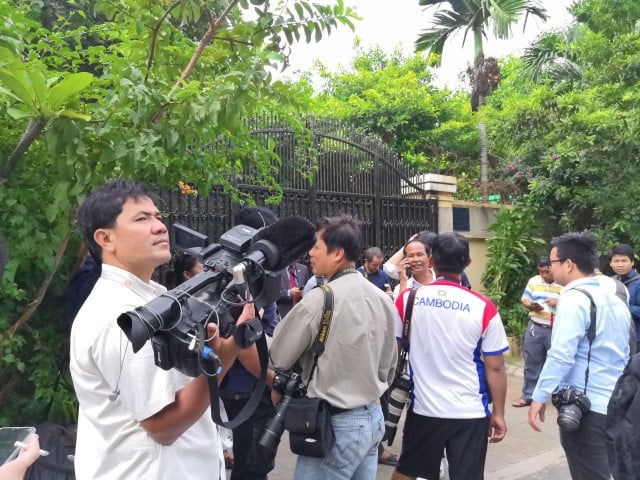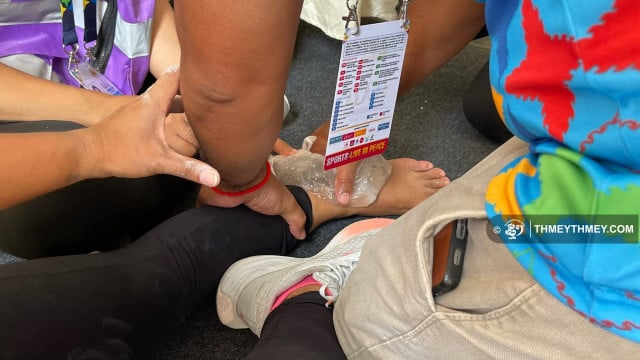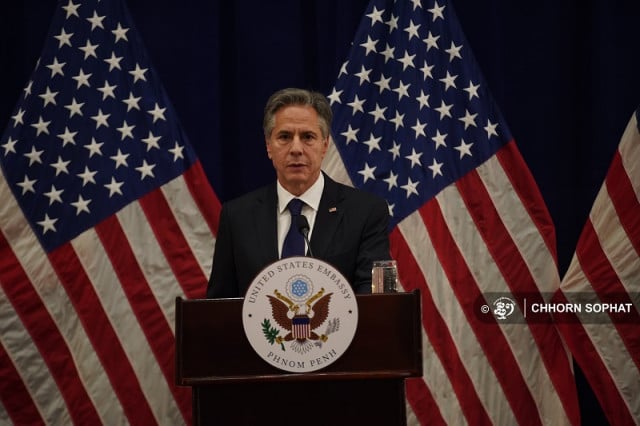International and National NGOs Ask the Cambodian Government to Stop Press Repression

- Phoung Vantha and Romdoul Chetra
- November 2, 2020 12:42 PM
while a government spokesman denies any repression, saying they misread the current situation
PHNOM PEN--Fifty-seven national and international organizations on Nov. 2 issued a joint statement in which they ask the Cambodian government to put an end to journalist harassment in the country and repeal or amend laws that, the statement read, “unjustifiably impede media freedom and freedom of expression.
“In the past years, the Cambodian government adopted a series of repressive laws that have enabled a crackdown on independent media and social media and resorted to provisions in the penal code—in particular articles 494 and 495—to silence critical reporting and its reporters,” the statement read.
Signed by organizations ranging from Amnesty International, the Asean Parliamentarians for Human Rights, the International Federation of Journalists Asia-Pacific, the International Press Institute and Reporters Without Borders; to the Cambodian Alliance of Trade Unions, the Cambodian Center for Independent Media, the Cambodian Human Rights and Development Association (ADHOC), the Cambodian Journalists Alliance and Human Rights Watch, the statement recaps measures taken against journalists and the media over the last few years, such as the forced closure of The Cambodia Daily newspaper in 2017 and the jailing of two Radio Free Asia (RFA) journalists, Yeang Sothearin and Uon Chhin, who have been released but still are awaiting trial.
“At least nine other cases of harassment against journalists have been recorded since 2019 including cases against Keo Hour, a journalist for Sneha Cheat online news site, who the authorities released on bail without dropping the incitement charges…Since the outbreak of COVID-19, the government has revoked four licenses of independent media outlets.”
Moreover, the Cambodian government this year has introduced laws that expand government control over the media, the statement read. “During the COVID-19 crisis, the Cambodian government adopted a highly repressive Law on the Management of the Nation in State of Emergency that provides Prime Minister Hun Sen with unfettered, undefined and overbroad powers to monitor private communications and an unlimited restriction of reporting by all media outlets.
“We also understand the Cambodian government has drafted a National Internet Gateway Sub-Decree, yet to be adopted, which would severely impact freedom of expression and information online, facilitate blanket surveillance of all online communications and would allow the blocking of certain types of content by the authorities if deemed to ‘affect safety, national revenue, social order, dignity, culture, traditions and customs,’” the statement read.
“Cambodia acceded to the International Covenant on Civil and Political Rights in 1992,” the statement said, adding that the country is therefore obligated to respect and protect freedom of opinion and expression in the country.
“We call on the Cambodian government to drop the charges and unconditionally release all journalists jailed for exercising their rights to freedom of expression, end harassment of journalists and media outlets,” the signatories write, adding that repressive laws should be repealed or amended and media licenses recently revoked reinstated to ensure freedom of expression and of the media in the country.
The NGOs misinterpret the situation in Cambodia, a government spokesman says
Reached on Nov. 2, Government Spokesperson Phay Siphan said the national and international NGOs’ statement did not reflect the current situation.
“The statement doesn’t reflect the reality, but it is actually a propensity, which doesn’t help journalists to be professional and ethical in doing their work,” he said, adding that those organizations should instead organize trainings to help prepare journalists to better do their job.
The Cambodian government has actually done a great deal to support the media community including establishing the Royal Government Spokesperson Unit and even put lawyers at journalists’ disposal, Siphan said.
“The government doesn’t repress any media organization or any journalist,” he said. “We…also provide lawyers to support them.”
However, Siphan said, journalists should be aware that they do not have any special privilege that allows them to break the law. “If they violate the rules, they are liable for their actions,” he said, claiming that some journalists have lost their rights and freedoms by getting involved in unlawful activities such as incitement and blackmailing.
When asked whether government laws will eventually drive a shrinking space for press freedom, Siphan responded that it would not and would instead encourage quality journalism.
“Press freedom won’t shrink but we will have quality news and information, which support national development,” he stressed.
Chin Malin, spokesman for the Ministry of Justice could not be reached for a comment.















